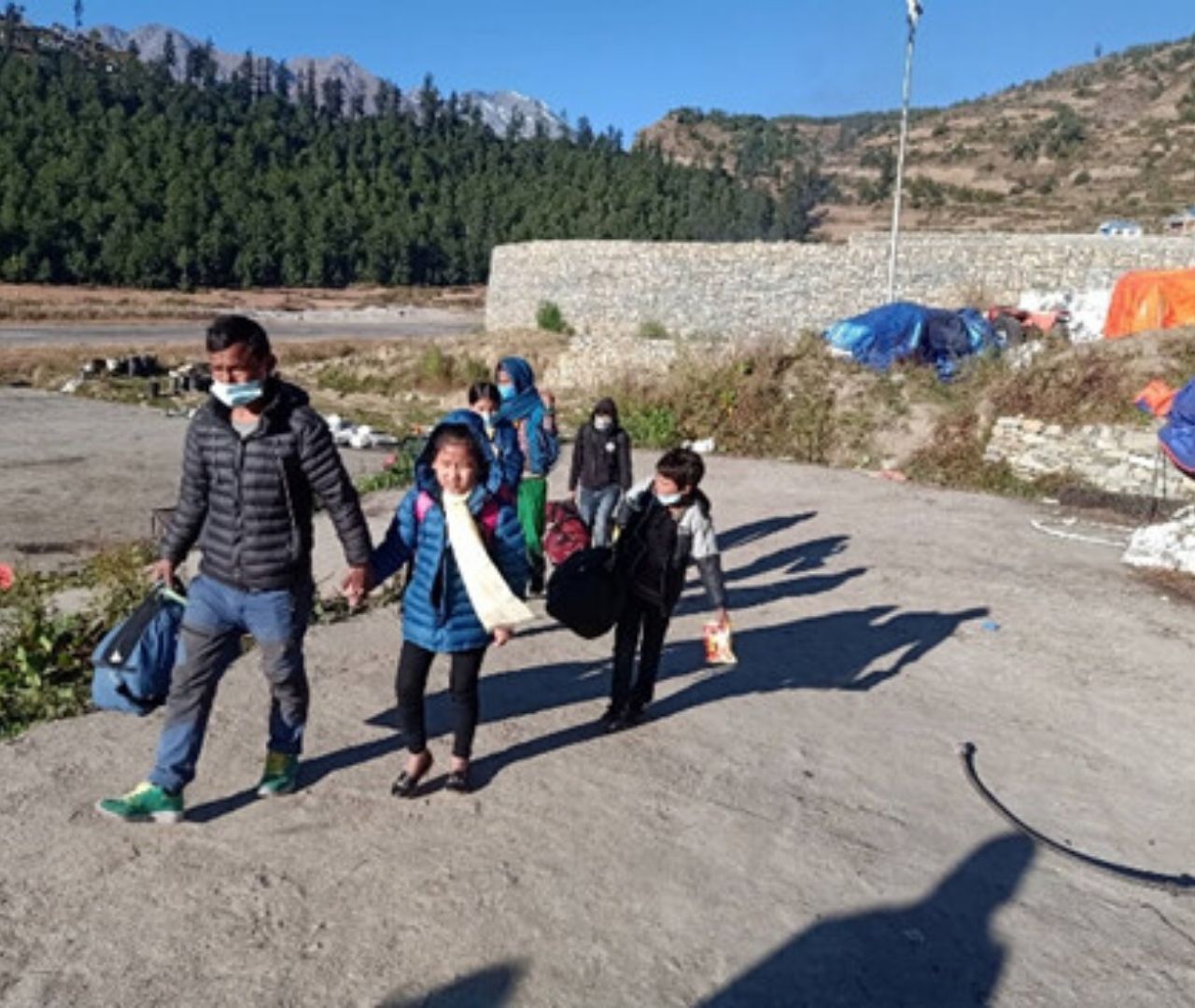Nine-year-old Tika had never flown before. Now he would be travelling in a small, twin engine plane, high into the Himalayas, back to his home district of Humla, one of the most remote areas of Nepal.
Like so many children from Humla, Tika had been taken from his family by traffickers. For a high fee, they promised his parents that he would be well cared for and educated in an institution in the city. Instead, he was taken to an orphanage where he survived alone for two years. He was neglected, abused and exploited to elicit donations from tourists.
When the Covid-19 emergency began, the owners of the orphanage shut up shop. The children whose families lived nearby were sent straight home, with no planning or preparation. But Tika and two other little boys whose families lived hundreds of miles away over the mountains, were virtually abandoned and left to fend for themselves for weeks.
Tika survived alone for two years, neglected, abused and exploited to elicit donations from tourists.
When the Nepali child protection authorities discovered what had happened, they asked our local partners, the NGOs, Forget me Not and The Himalayan Innovative Society (THIS), to care for the children at their transit home and help reintegrate them with their families. Over the summer, their skilled family tracers, managed to find and contact the children’s parents and prepare everyone to be reunited.
On the morning of October 2020, Tika and three other children – Prani, Deepa and Sonika – began their journey home.
They were introduced to a dedicated social worker called Tenzin Lama. With long experience of reuniting children from orphanages with their families, he had come to accompany the children to the airport. “They were all smiling with nervousness and excitement”, Tenzin told us. “On the way, I answered their questions and talked to them about what to expect when they arrived, how living in a family is different to living in an orphanage”.
At the airport, once the necessary Covid checks had been made, Tenzin entrusted the children to his fellow Reintegration Officer, Mangal Lama, who guided and reassured them through their hour-long flight through the mountains, to Simikot, 3,000 feet above sea level and the main town in Humla district.
“On the way, I answered their questions and talked to them about what to expect when they arrived, how living in a family is different to living in an orphanage”.
Tenzin Lama, social worker
At 7.40am, they landed safely back home. The children were met by Prabhujan Shahi, another member of the reintegration team. A few days before, he had contacted the children’s parents and confirmed their journey plan, giving them time to travel from their villages, to be there when their children landed. Local officials were also on hand, to ensure that all proper procedures were followed and guardianship of the children was legally restored to their families.
Finally, once all the paperwork and checks had been completed, the social workers and the officials stepped back and allowed Tika, Prani, Deepa and Sonika to be alone with their families for a short time, before making the final arrangements for them to return home to their villages.
“We could see the happiness and love in the faces of the parents and their children. They had been so worried about their children before, but now they were so happy to be reunited with them again.”
Prabhujan Shahi, FMN Reintegration team member
Today, Tika, Prani, Deepa and Sonika are all safely back at home with their families. Prabhujan and his colleagues keep in contact by phone. They also make regular visits to see the children in person, walking for days to reach their villages and ensure they remain safe and happy where they belong, with their parents and their siblings to love them.
Support our work Bring home more children like Tika
By making a regular monthly gift of £32 over three years, you could help rescue a child from and orphanage and ensure they always have a family to love them.
